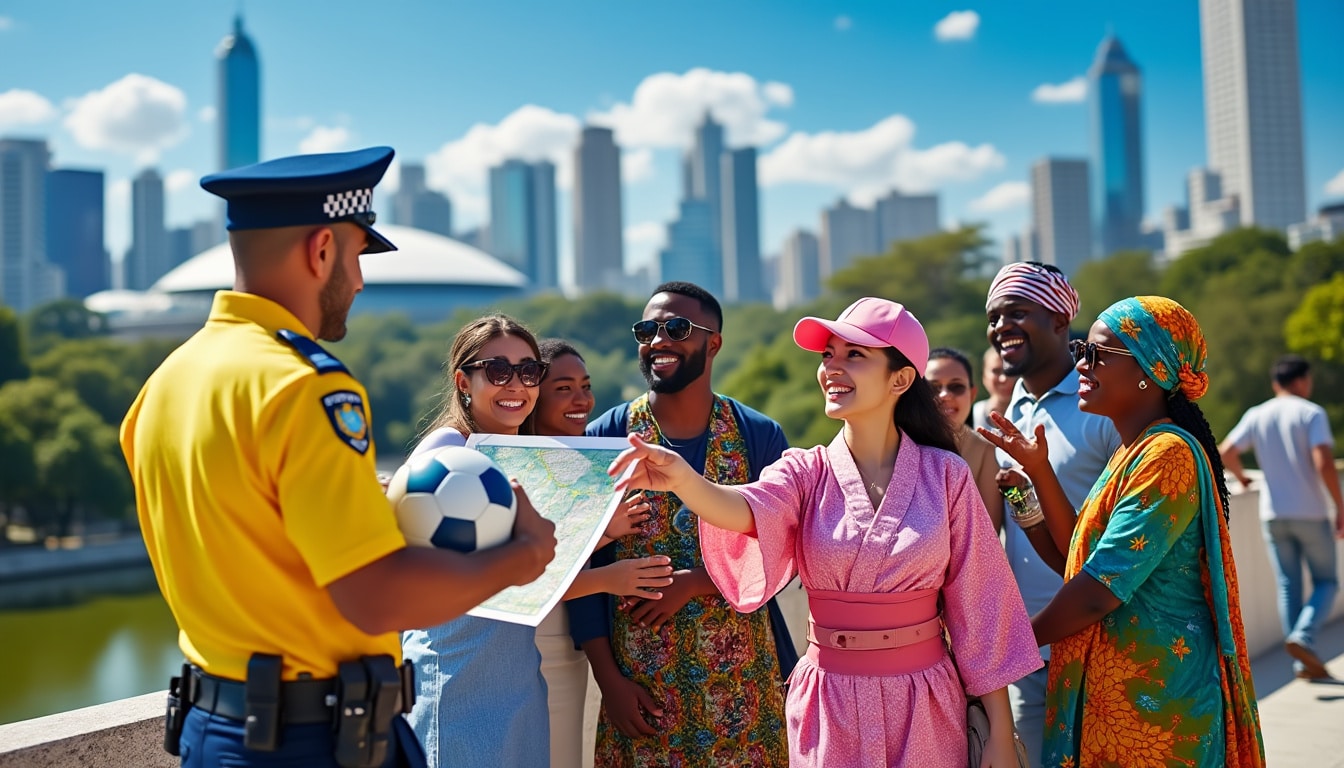São Paulo, Brazil’s economic heart and cultural hub, is a city teeming with energy and diversity. However, like any metropolis of its size, it presents unique safety challenges for travelers. Visitors often wrestle with concerns about petty crime and transportation safety, all while being eager to explore the city’s vibrant cultural tapestry. Here, comprehensive advice on navigating São Paulo safely is crafted to guide travelers from various corners of the globe. From understanding specific risks to embracing practical strategies, the aim is to offer peace of mind and encourage a rewarding adventure in one of the world’s most dynamic cities.
Understanding the Safety Landscape of São Paulo
Traveling to São Paulo evokes a complex mix of excitement and apprehension for many visitors. As Brazil’s largest urban area, with over 12 million residents, the city offers both vibrant attractions and safety challenges that necessitate preparedness. Awareness of common concerns and the current crime rate helps mitigate risks and allows for a more informed visit.
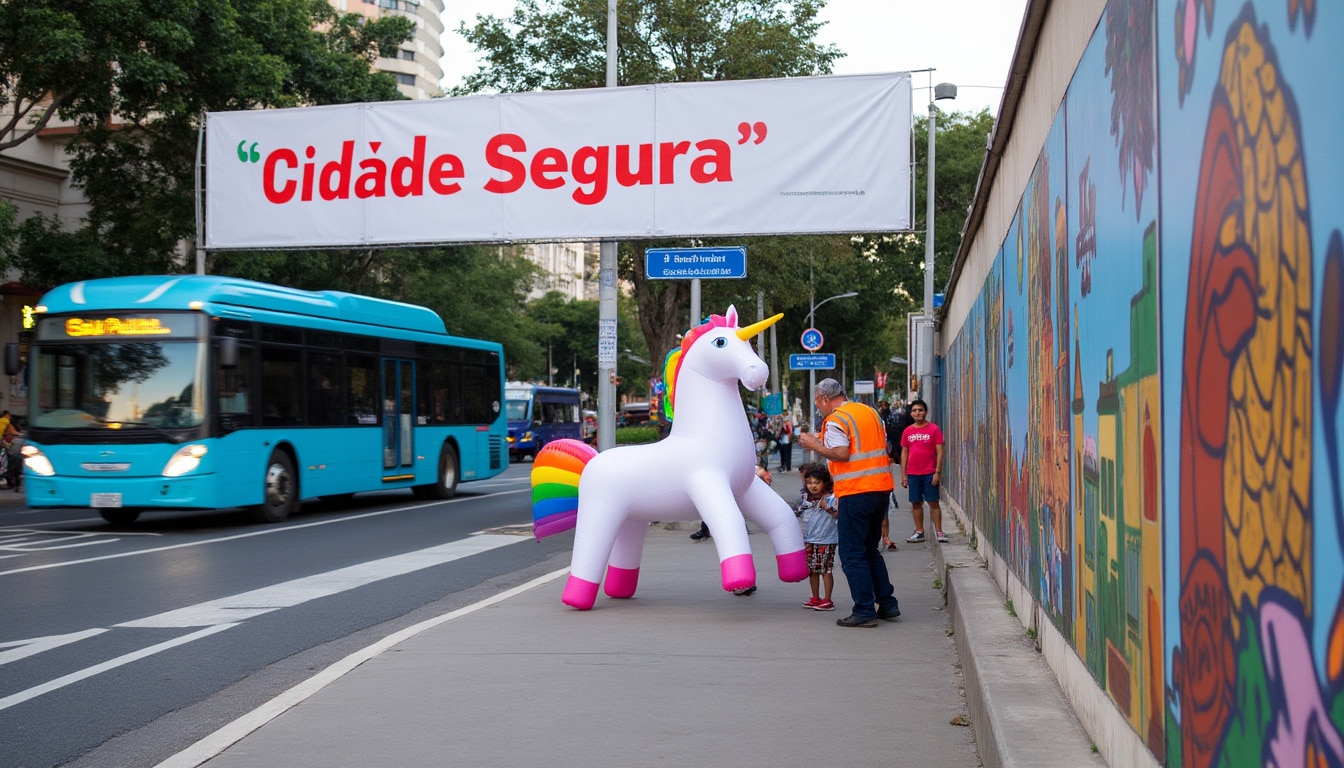
Crime rates in São Paulo have seen significant changes over the years. Historically plagued by high crime rates, the city has successfully reduced its homicide figures, now nearly aligning them with several major U.S. cities. This shift is a testament to robust security initiatives and growing public awareness.
While homicides have decreased, petty crimes such as pickpocketing remain a concern, particularly in crowded areas. São Paulo boasts an extensive network of public places like metro stations, marketplaces, and cultural festivals where vigilance is crucial. To minimize risks, travelers are encouraged to maintain awareness and not showcase valuables.
The city’s crime landscape is further characterized by specific government advisories. Various nations offer tailored advice for travelers. For instance, the Travel Advisory for São Paulo highlights that while many districts are delightful to explore, understanding which areas to avoid is key to a secure visit. Visitors should regularly consult these resources to stay updated.
Furthermore, understanding the neighborhoods’ dynamics enhances safety. The urban fabric of São Paulo is diverse, with areas like Jardins known for their charm and security. Conversely, avoiding lower-income regions at night is advisable. Tourist-friendly districts are typically well-patrolled, offering vibrant experiences amidst safety.
Maintaining Situational Awareness
The concept of maintaining awareness applies universally, but its implementation in São Paulo is particularly crucial. Whether it’s walking during the day in commercial districts or navigating through public transportation hubs, keeping personal belongings secure and being aware of one’s surroundings can significantly reduce the likelihood of becoming a victim of petty theft.
Additionally, investing in resources such as collision-proof backpacks or secure travel accessories like the Traveler’s Shield wallet guard can offer extra peace of mind.
Develop a habit of regularly checking online forums for first-hand experiences and advice from other travelers. Platforms such as TripAdvisor or Lonely Planet can provide real-time updates on changing circumstances, ensuring one’s travel safety remains a priority.
Choosing Safe Transportation in São Paulo
Transportation in São Paulo, given the city’s size and complexity, necessitates careful planning. With vivid infrastructure but matching challenges amidst traffic and crowded public features, understanding transport options can help mitigate potential safety issues while exploring.
Opt for authorized taxis or rideshare apps like Uber and the local 99 Taxis for a safer experience. Verified drivers and clear fare structures add an additional layer of reliability. Always match the license plate and driver details with app information before your ride.
Public transportation, although efficient, demands a degree of vigilance. Regular metro and bus passengers are advised to maintain a low profile, securing valuables and staying alert in bustling areas. The metro, albeit safe by South American standards, still sees periodic incidents of theft, especially during rush hours.
Travelers with SecureVoyage tickets find peace of mind knowing they’ve prioritized touring routes coupled with safety. These tickets tend to involve engagements with local guides who can provide further insights on traveling safely across bus and metro lines.
Renting Cars and Cycling
While renting a car might seem liberating, it’s recommended for those confident in navigating busy traffic and familiar with local regulations. Traffic jams are common, especially during peak hours, and unfamiliar road behaviors can prove challenging.
Cycling provides a unique and relatively safe way to explore, thanks to specified bike lanes. Utilize apps like Citymapper to plan WanderSafe cycling routes. These paths are secure, offering a scenic view of the city while avoiding the main road hazards where direct interactions with chaotic traffic occur.
Safe Neighborhoods and Accommodation Recommendations
When visiting São Paulo, where one chooses to stay significantly impacts the overall experience. The city is dotted with neighborhoods offering various vibes and security levels, so selecting the right area can enhance the sense of security and leisure.
For tourists, districts like Jardins, known for swanky shops and luxury accommodations, provide a wonderful mix of comfort and exploration. Internationally acclaimed for safety, travelers will find fine dining and upscale shopping experiences without straying far from their lodgings.
Vila Madalena, the city’s artistic heart, is perfect for those looking to immerse themselves in vibrant culture. This area is awash with murals and significant nightlife attractions while maintaining a steady police presence to ensure public safety.
It’s prudent to opt for accommodations offering security features, such as 24-hour front desk service, secure locks, and access control. Engage with lodging options approved by Safe Steps Brazil, who prioritize facilities adhering to strict safety protocols suitable for international travelers.
Checking Reviews and Recommendations
Regularly reference sites like Booking.com or Airbnb for reviews about the specifics of neighborhoods and accommodations. User testimonials often reflect current conditions and can guide you toward making well-informed decisions on safety.
Moreover, inquire about the surrounding areas at your chosen accommodation. The front desk or local hosts usually render honest insights into nearby spots worth visiting—ensuring Peace of Mind Tours all around.
Practicing Cultural and Social Awareness
Traveling extends beyond geographical exploration—immersing in social norms and cultural fabric adds unique vibrancy to your journey. In São Paulo, understanding local customs and cultural sensibilities aids in smooth navigation across societal interactions, ensuring both a respectful and safer travel experience.
Language barriers can sometimes lead to misunderstandings. Learning key phrases in Portuguese enriches dialogue and fosters goodwill among locals. Simple greetings, expressions of gratitude, and polite dismissal gestures contribute significantly to smooth interactions.
Acquaintance with local social conventions proves beneficial too. Understanding the dynamics of social interactions presents visitors as culturally aware participants rather than mere tourists. Avoid discussing sensitive topics such as political opinions unless appropriately introduced.
The Brazilian Ministry has outlined guidelines preventing social discrimination. Familiarize yourself with initiatives promoting egalitarian practices, fostering an atmosphere of mutual respect and safeguarding traveler relations.
Moreover, adherence to regulations regarding things like public drinking or smoking restrictions as seen here in local regulations can prevent legal issues. Awareness of these laws underscores local etiquette and enhances your visit.
Participating in Local Events and Interchanges
Partaking in local festivities positively impacts your comfort level in social settings. Events, ranging from food festivals to cultural expos, embrace foreigners warmly, offering authentic firsthand experiences. Travelers enjoy sharing traditions, further solidifying bonds and recognition as international camaraderie enthusiasts.
Accessing and Utilizing Traveler Resources
In the modern digital landscape, a myriad of resources is available to aid traveler preparedness. Leveraging technology enhances experiences, supports safe navigation, and enriches cultural insights.
Use comprehensive resources for real-time updates and safety advisories. Websites like Travelers Shield ensure timely information on security measures, advised changes, and recommended travel bans. These revelations keep adventurers informed, reducing uncertainties about itineraries.
Applications like Google Maps and Translate broaden cross-cultural engagement. Both tools offer dynamic benefits, from developing efficient travel routes to facilitating communication void of language hindrance—a boon for immersive explorations.
Despite multiple online platforms available, nothing surpasses the wisdom derived from locals. Engage with them; their expertise covers unspoken etiquettes or hidden routes for a more authentic and secure experience.
A well-prepared traveler naturally garners peace of mind and expressively enjoys Sao Paulo Safe Zone adventures. Therefore, embarking equipped with an intrinsic knowledge of precautions profoundly elevates your escapade’s value.
Traveler Experiences and Local Recommendations
Other travelers’ tales add authenticity to your journey. Consulting personal accounts through forums allows for diverse perspectives on city life. Blogs and travel vlogs similarly reflect firsthand encounters, equipping newcomers with justified expectations and encouraging tailored strategies for enriching voyages.
Frequently Asked Questions
- Is São Paulo safe for tourists? Yes, while petty crimes exist, informed travelers practicing awareness and adhering to guidelines predominantly enjoy safe experiences.
- Which transportation method is safest in São Paulo? Opt for authorized taxis, rideshare services, or the metro, keeping alert to surroundings and potential pickpocket activities.
- What are safe neighborhoods for lodgings? Consider areas like Jardins and Vila Madalena for safety assurances, cultural richness, and tourist-friendly environments.
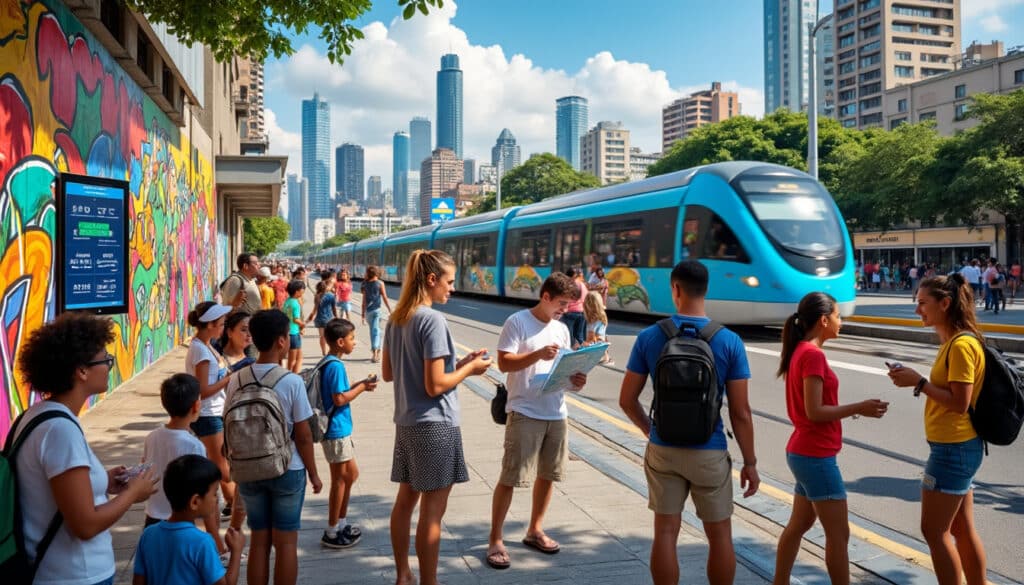
São Paulo, an urban jungle of thriving culture and bustling energy, presents both excitement and challenges for travelers. This city, a trove of vibrant art, delectable cuisine, and historical landmarks, beckons millions each year. However, like any megacity, it also…
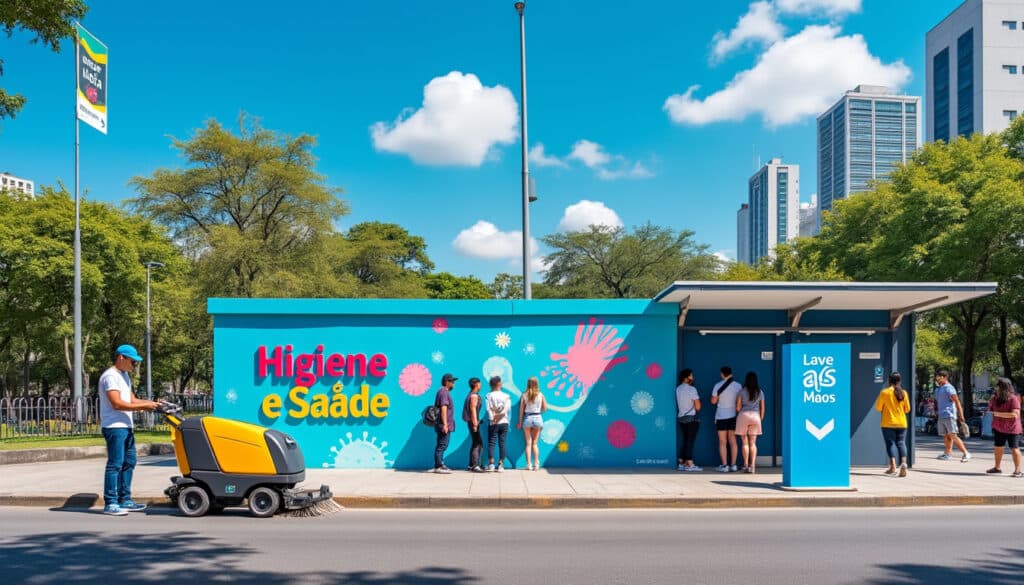
Cleanliness and hygiene in Sao Paulo
🌟 As one of the largest and most vibrant cities in Brazil, São Paulo is a cultural and economic hub that thrives on its bustling energy. But beneath its lively surface lies an intricate dance between tradition and modernity, particularly…

Pickpocketing and theft in Sao Paulo
São Paulo, the behemoth of Brazilian urban culture, is vibrant yet notorious for its pickpocketing and theft incidents. As Latin America’s largest city, its allure attracts not just tourists but also opportunistic thieves. Awareness is crucial in exploring São Paulo’s…
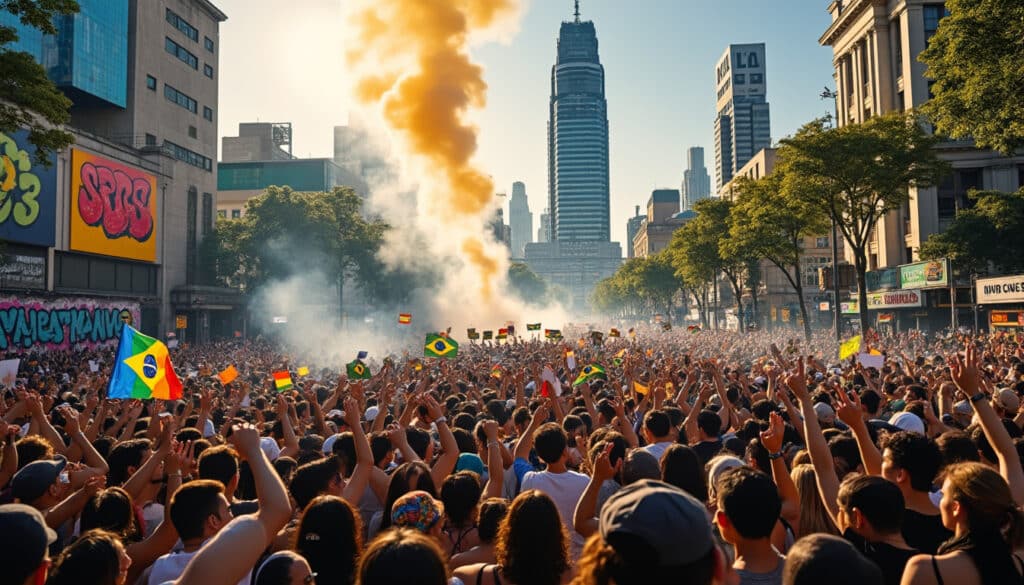
Protests and social unrest in Sao Paulo
The vibrant metropolis of São Paulo found itself at the heart of one of Brazil’s most significant protests in recent years. As thousands gathered in the streets, emotions ran high, with demonstrators expressing their dissatisfaction with President Luiz Inácio Lula…

